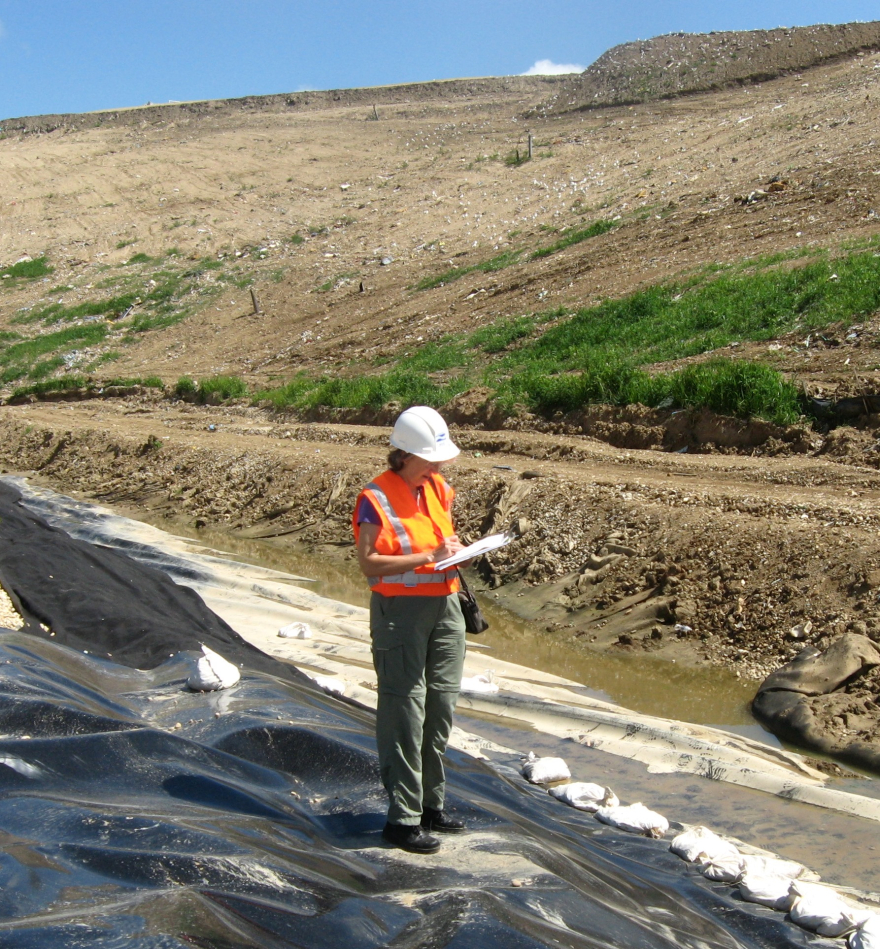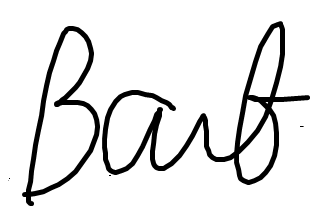|

Hi Barb,
If you've read my About page, you know that I am a nerd.
I'm a hydrogeologist, that is, a geologist who studies how water moves through the ground. I specialized in groundwater quality. That's me, above, in 2013, inspecting a landfill under construction, to make sure it would minimize contamination to groundwater.
This qualifies me as a nerd, a science nerd.
I also was an expert in medical waste management. Sharps, blood, chemo, pharmaceuticals, Ebola waste, Generatioin, reduction, storage, treatment. I did it all.
Add "medical waste nerd" to my credentials.
While getting people to work together to reduce medical waste, I discovered I had a knack for meeting facilitation. I've pursued that passion with gusto for 15 years now, first as a hobby and now as a business.
Being a meeting facilitator makes me a triple nerd.
Recently, two of my nerdships reconnected. I led a workshop for a bunch of geologists about increasing engagement in their meetings.
More than half of the geologists mentioned that getting people to focus in meetings is a big challenge. Other groups that I've led through that workshop haven't talked THAT much about focus. I began to wonder, "Is lack of focus unique to scientists? What other meeting challenges are lurking out there in the land of science and health?"
I want to know!
So I have a question for you, whether you are a nerd or not.
Do you work with data-driven people? I'm looking to interview scientists or people working in healthcare, public health or STEM (science, technology, engineering and mathematics). And, people who work with them. Is that you?
If so, would you be willing to hop on a 20 minutes call (or zoom) with me? This would be a research call (no sales).
***Nerd alert***: My working hypothesis is that science and health professionals have challenges common to all of us and some unique challenges. The interviews will provide data to test this hypothesis. I anticipate writing a peer-reviewed article that compares and contrasts the challenges today with the meeting challenges I noted in 2021.
If you are open to being interviewed, please reply to this email and I'll send you a link to my calendar.
Warmly,

Barb Bickford
P.S. Feel free to forward this email to other professionals in science or health. I'd love to hear their insights.
Showing Digital Empathy
What can we (nerds and non-nerds) do to show empathy to co-workers when we are online? Sumeet Moghe offers sage advice about opportunities to practice digital empathy when reading and writing asynchronously, and before and during meetings.
We would do well to apply his advice. Pick one thing he suggests and practice doing it this week.
I'm choosing the last one, which is to thank people. Thank you for reading this email!
Beyond Bob: Min Specs for Making Decisions in Small Governing Boards
-- online, Wednesday August 14th, at 5 PM central time (90 minutes or less), no cost
Many organizations cite Robert's Rules as their standard for procedures during meetings. But merely referring to Robert's Rules (all 800 pages of them) can create problems for those who don't know them or how to use them well.
If you geek out on experiments, you'll love this one. First, we’ll first explore both the advantages and potential problems of using Robert's Rules. Then we'll use the Liberating Structure "Min Specs" to identify some absolute minimum rules needed in order for a small governing board to make decisions.
Will we find the holy grail, the cure-all for dysfunctional boards? Probably not, but we will have fun.
Join Daryl Yankee, me and the Washington DC Liberating Structures Community of Practice as we tackle this topic. All are welcome - even if you have never heard of Liberating Structures before! Register here.
Practical Clean Language
-- online, £37 (less than $50 USD)
Did you miss the course about Better Conversations for More Effective Healthcare? Are you curious about Clean Language? Here's an online course that's ideal for those who work as change-makers, especially in organisations. If you are a consultant, a coach, a facilitator, a trainer... if your job involves helping people make transformations in their lives then you will find this useful. Learn more and register here.
Recent blog posts
-- Balancing Task and Group Focus
-- 4 Ways to Refocus Your Meetings
Our current workshops and courses
Put on your own oxygen mask first:
Breathe before meetings
Today's tip comes from "The 25 Minute Meeting" by Donna McGeorge (page 98).
It is simply this: Before attending a meeting, pause and breathe.
It will help you focus on the meeting.
Donna advises, "Take a moment at the beginning of the meeting to gather yourself and your thoughts. Take three breaths and set your intention for how you plan to participate in the meeting."
You might reinforce this habit by coupling it with an action you always do just before a meeting starts.
-- In person, you might take those three breaths immediately after you sit down.
-- Online, you might breathe just after you click to join the meeting.
And, borrowing from BJ Fogg's Tiny Habits method, you might also congratulate yourself after you've breathed and set your intention. Celebrating even a little bit will reinforce any habit you want to adopt. (Learn more about creating tiny habits.)
Want even more tips? Access Ten Tips to Foster Online Engagement.
NOTE: I don't receive anything for recommending resources offered by others,
except the good feeling of knowing I've passed on something of value to you, dear reader.
If you were forwarded this newsletter email, you may subscribe here.
You can also sign up for topics you want to hear more about.
|